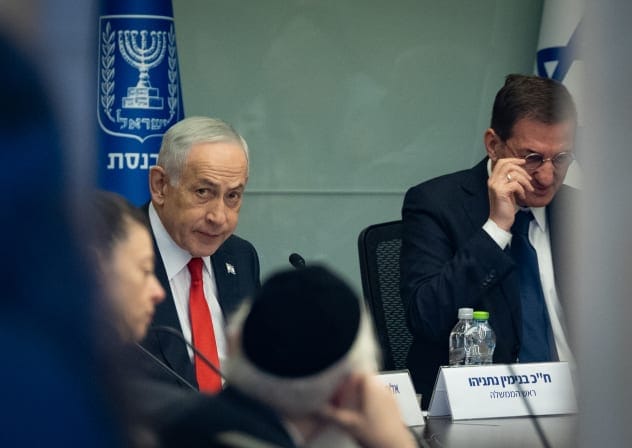Six West Bank caregivers, kindergarten director arrested for suspected abuse
The suspects, residents of Beit Aryeh-Ofarim in the northern West Bank, in their 20s and 40s, have been brought in and are being investigated, according to police.

The suspects, residents of Beit Aryeh-Ofarim in the northern West Bank, in their 20s and 40s, have been brought in and are being investigated, according to police.




Additional reports pointed out that there were four other victims at the scene, two injured in moderate condition with injuries to the abdomen and limbs, and two injured in light condition.

Herzog was invited to visit the country after the tragedy by the Governor-General, the Prime Minister of Australia, and the Jewish community following the attack in December 2025.

The MKs' letter to the Attorney-General alleges a conflict of interest arising from the potential buyer's ties to PM Benjamin Netanyahu.

Attorney-General Gali Baharav-Miara accused National Security Minister Itamar Ben-Gvir of unlawfully intervening in police appointments and delaying a senior promotion for political reasons.

Pnimeet teaches Jerusalemites how to fix their own bikes, cutting costs, reducing waste, and easing daily life in a car-clogged city.

In one section, Channel 12 reported that Netanyahu instructed officials to promote a civilian arrangement with Hamas and expand the use of humanitarian tools as leverage over Hamas policy.

The suspect, an east Jerusalem resident who was in possession of the coins and stolen equipment, was arrested after failing to comply with police calls.

Protests against violent crime in the Arab sector will expand to include economic boycotts, MK Ayman Odeh told The Jerusalem Post on Sunday.

In 2025, the number of “nationalistic” Jewish crimes spiked to 867, up from 682 incidents in 2024. More than 50 incidents of nationalist crimes were reported in the past month.

Newly approved measures will remove land-sale restrictions, expand enforcement in Areas A and B, and renew state-led land acquisition in the West Bank.
